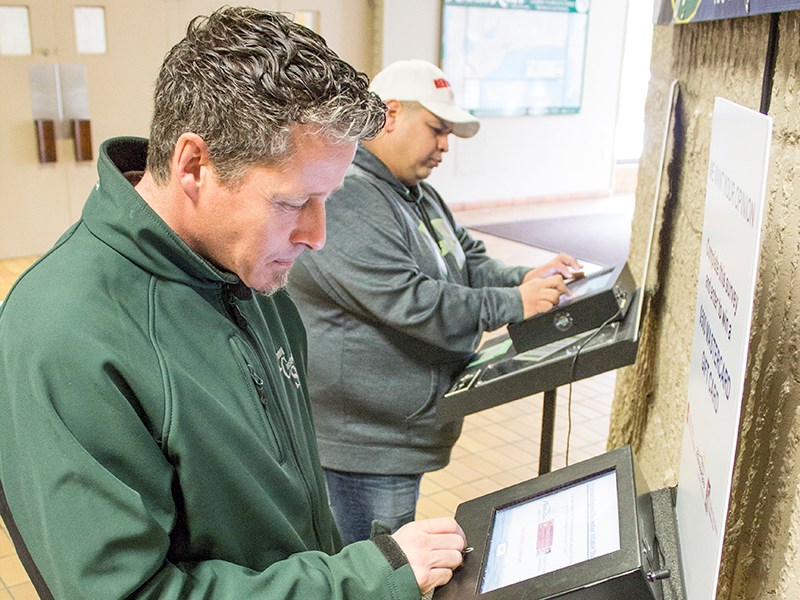A study on regional recreation has already garnered almost twice as many responses from the public than first expected and expectations are high for total number of responses by the close date of Tuesday, March 15.
The Regional Recreation Initiative Study, being facilitated by the City of Powell River, is being used to develop the city’s 10-year recreation plan, exploring how parks, recreation and culture services might best be provided throughout the region, said Ray Boogaards, director of parks, recreation and culture.
Boogaards has been leading the almost year-long expanded regional recreation initiative study with the help of Powell River Recreation Complex manager Neil Pukesh, key staff members in his department and local communications firm Infinity Multimedia.
The study began last spring and included almost 60 community focus group sessions throughout the Powell River region, excluding Lasqueti Island. Starting in January, the focus of the study shifted to having residents complete a recreation survey, which can be completed online, on paper or at one of several mobile electronic kiosks.
The parks director reported to city council recently the team has increased its expectations for the number of responses they expect; they now hope to collect 3,000 surveys by the deadline.
“Our goal was to make between 900 to 1,000. We thought that would be a pretty good representation of the community,” said Boogaards. “Statistics are better, more accurate, when you’ve got a
bigger sample size.”
Bobby Turcotte, a south-of-town resident, recently completed the survey at one of the kiosks set up at the recreation complex. Turcotte said he is pleased to see the efforts being made to ask residents in the electoral areas and the city what they would like to see.
“It’s quite complete and thorough of a survey,” said Turcotte.
Though spearheaded by the city’s recreation department, the project received the go ahead by chief administrative officers from Powell River Regional District, City of Powell River and Tla’amin Nation.
The $40,000 in-depth study’s aim is to capture even more detailed feedback than previous higher level looks at recreation services in the city, and examine how residents throughout the region participate in recreational programs and facilities to find out what types of programming they want offered in the future. Boogaards added that inside the city, the work will provide the data for a 10-year recreation and culture plan.
“We want to know what people enjoy doing, so at that point we can start planning for what kind of activities we will proceed with, and not only programs, but also facilities,” said Boogaards.
Through community focus group sessions, three broad barriers to participating in recreation programming have been identified, including ones around transportation, costs of participating and communications. With the high levels of people living under the poverty line, the study may push the city to expand its recreation financial aid program, said Boogaards.
The team is currently compiling the data from the community sessions and writing reports. Boogaards said the study’s results will be released to the public before the group presents it to the three local governments.
He added that any public feedback collected on the study’s results will also be collected and presented to local government.



